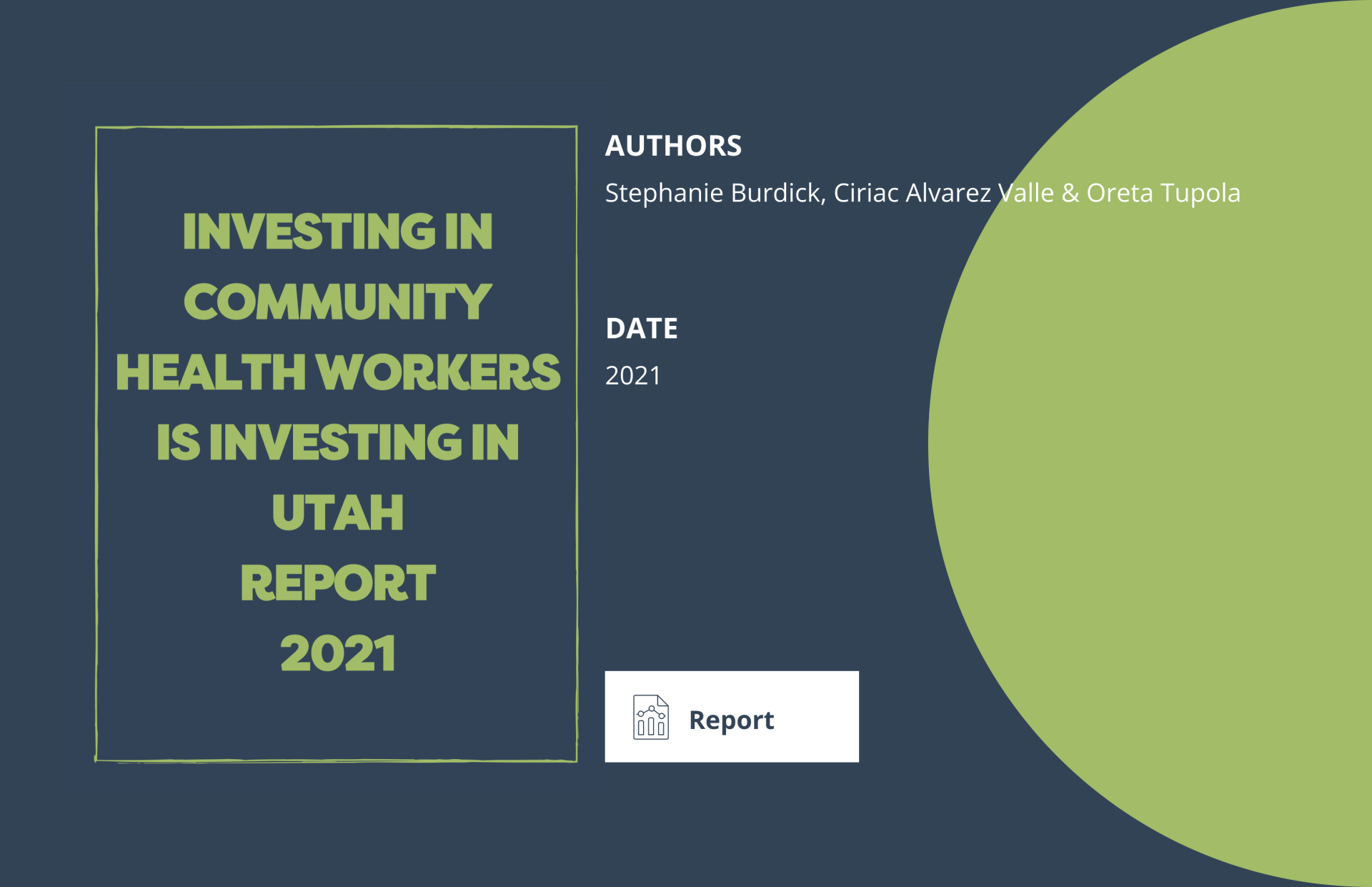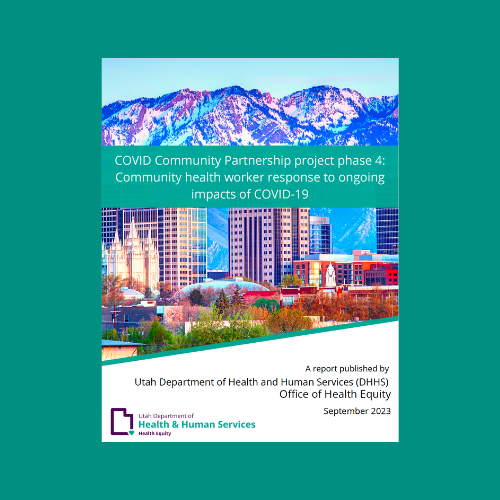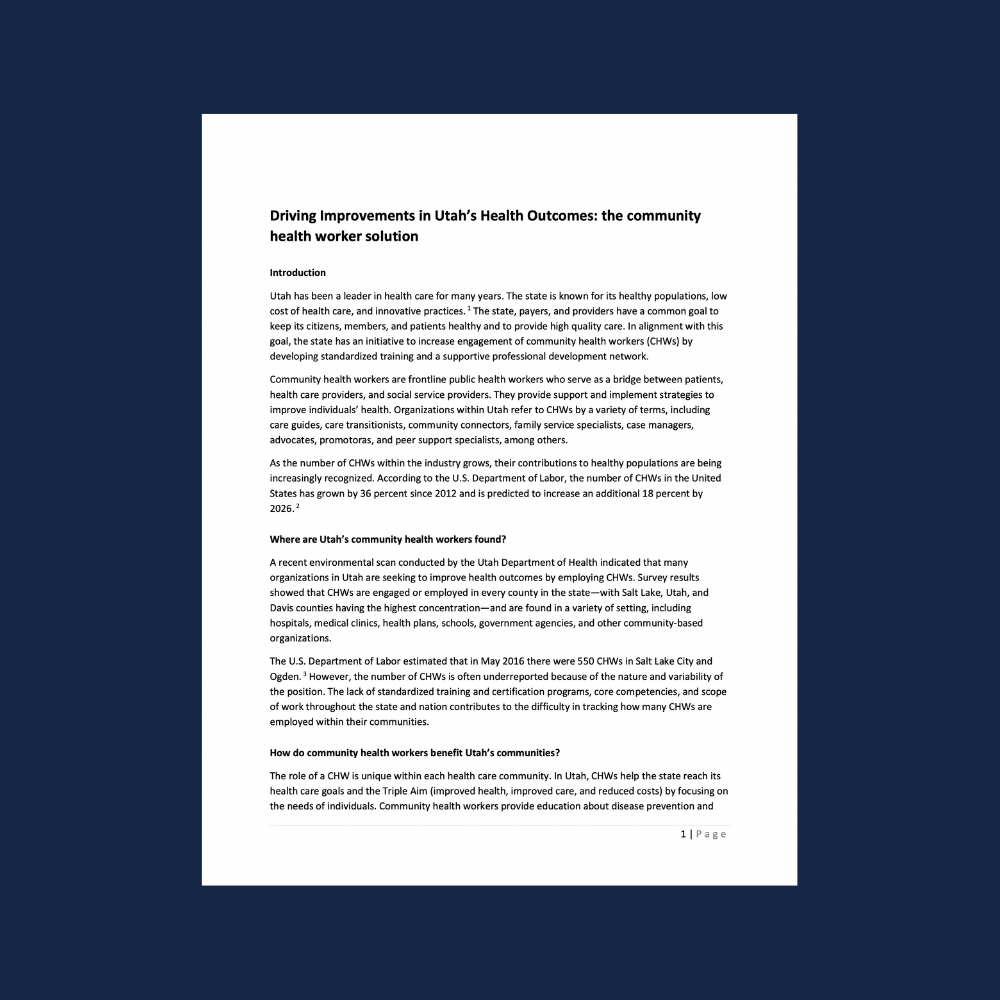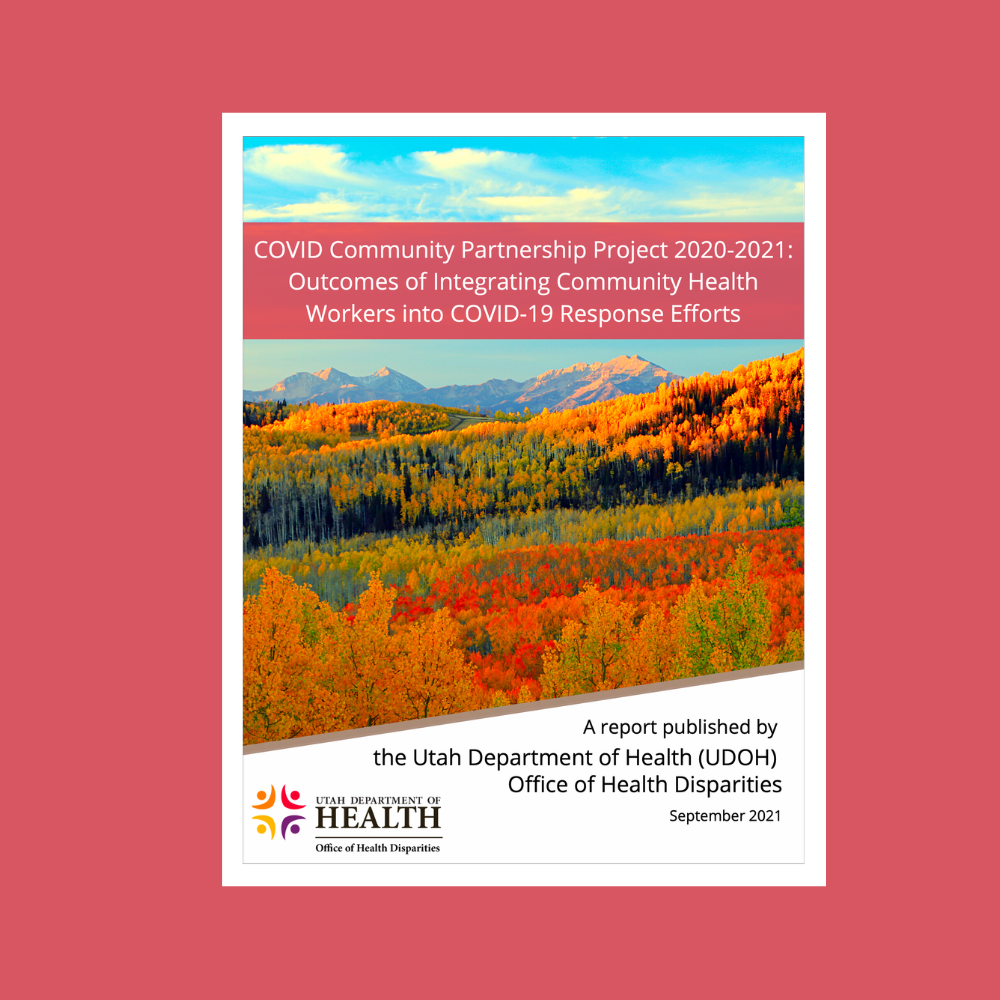INVESTING IN COMMUNITY HEALTH WORKERS

Table of Contents
1. Key Terms and Acronyms
2. Utah's History of Promotoras and Community Health Workers
4. Executive Summary
5. State of Utah Health
8. The Role of Community Health Workers
13. Moving Forward with Community Health Workers: Policy Recommendations
21. Investing in Community Health Workers is Investing in a Stronger Utah
22. Conclusion
23. References
Executive Summary
As the Covid-19 pandemic erupted in 2020, interest in an existing but underfunded community-centered workforce emerged. Federal and state policymakers, public health agencies, health system leaders, and social service providers increasingly recognized what neighborhood organizations and community clinics knew all along—community health workers are critical to improving health outcomes. The purpose of this policy report is to provide a brief snapshot of Utah’s health disparities; dive into the role of community health workers; and discuss opportunities for long-term sustainability of this workforce. We hope this policy report will provide policymakers, public health and healthcare leaders with an understanding of this unique workforce and how they fit into a vision of health equity in Utah.
Through the pandemic, case rates, death rates, hospitalization rates, and economic hardship have not been evenly distributed revealing inequalities in health outcomes across our state. Health disparities are unjust and preventable are not unique to the coronavirus. They exist in diabetes, cancer, infant mortality and many more health indicators. These gaps in health cannot be explained by biology or geographical boundaries. Instead, the causes are due to the conditions in communities that influence our health, otherwise known as the social determinants of health. Generating healthier outcomes will require policymakers and public health objectives to focus on addressing these social and environmental determinants of health.
"The purpose of this policy report is to provide a brief snapshot of Utah’s health disparities; dive into the role of community health workers; and discuss opportunities for long-term sustainability of this workforce."
Community health workers are frontline public health ambassadors and health educators, with a trusted and close understanding with the community being served. Health workers can assist community members in addressing unmet social needs, promoting health, and building the capacity of the community. Recommendations to support community health workers include partnering for health equity programming; formalizing certification; and development of a sustainable Medicaid payment model. Utah will benefit from these policies through improved health outcomes, increased empowerment in historically under-resourced communities, and a stronger health workforce.
This report is the result of a lengthy and highly collaborative process and reflects the local and national landscape for community health workers. The sum of this report was put together through a combination of CHW meetings and small group interviews, survey collection, and observations from public health practitioners. Moving toward health equity will not happen with one policy; however, collaborating with community health workers as co-equal partners will be an essential step forward.





